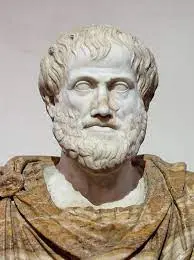
Socrates was a classical Greek philosopher who lived in Athens from 469/470 BCE to 399 BCE. He is known as one of the founders of Western philosophy, and his ideas and teachings have profoundly influenced the development of Western thought. Socrates did not leave behind any written works of his own, so most of what we know about him comes from the writings of his students and contemporaries, such as Plato and Xenophon. Socrates was known for his unique teaching method, which involved asking probing questions to help his students arrive at their own understanding of a concept. This method is now known as the Socratic method and is still used in education today. Socrates was also known for his emphasis on ethics and morality, and his belief that it is more important to live a virtuous life than to pursue wealth, power, or material possessions. He believed that true wisdom comes from acknowledging ignorance and that pursuing knowledge and truth is a lifelong journey. Socrates’ teachings and philosophy were controversial in his time, and he was eventually sentenced to death by drinking hemlock for allegedly corrupting the youth and not acknowledging the gods recognized by the state. Despite his death, Socrates’ ideas and legacy continue to influence philosophical and ethical thought to this day.

Plato was an ancient Greek philosopher who lived from around 428/427 BCE to 348/347 BCE. He was a student of Socrates and went on to become one of the most important philosophers in Western thought. Plato is perhaps best known for his many works of philosophy, which include “The Republic,” “Symposium,” “Phaedo,” and “Timaeus.” These works explore a wide range of topics, including ethics, politics, metaphysics, and epistemology. Plato’s philosophy is marked by his belief in the existence of objective, eternal forms or ideas, which he believed were more real than the physical world we experience through our senses. He also believed in the importance of reason and critical thinking in the pursuit of
knowledge and truth. In addition to his philosophical work, Plato founded the Academy in Athens, which was the first institution of higher learning in the Western world. The Academy was a center of philosophical and scientific research and education, and it helped to establish Athens as a cultural and intellectual center in the ancient world. Overall, Plato’s contributions to philosophy and education have had a profound impact on Western thought and culture, making him one of the most important figures in ancient philosophy.

Aristotle was an ancient Greek philosopher who lived from 384 BCE to 322 BCE. He was a student of Plato and went on to become one of the most important philosophers and scientists in Western thought. Aristotle’s works cover a wide range of topics, including logic, metaphysics, ethics, politics, biology, and physics. He was interested in understanding the nature of reality and the world around us, and his philosophy emphasized the importance of observation and empirical evidence in the pursuit of knowledge. Aristotle’s philosophy is marked by his belief in the importance of finding a middle ground or balance between extremes. For example, he believed that the ideal state was one that balanced individual freedom and the common good, and he believed that the best way to achieve happiness was to live a life of moderation and balance. In addition to his philosophical work, Aristotle was also a prolific scientist who made important contributions to the fields of biology and physics. He was particularly interested in the study of living organisms, and his work on biology and zoology laid the foundation for modern scientific inquiry. Overall, Aristotle’s contributions to philosophy and science have had a profound impact on Western thought and culture, making him one of the most important figures in ancient philosophy.
